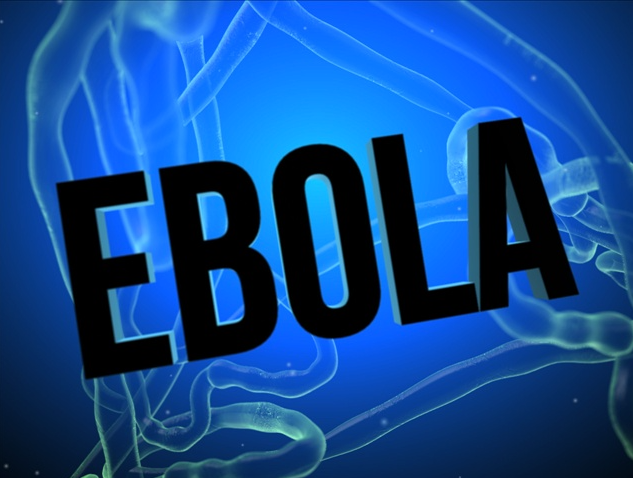From Wil—
I’ve been getting shelled with questions about the Ebola outbreak due in large part, I’m sure, to the fact that I manufactured a nightmare scenario of a similar nature in my 2012 novel The Gemini Virus. The nail-chewing concern of my children alone (the youngest is an enthusiastic but cautious twelve) is an alarming thing to witness, and I’ve got friends and extended family pelting me with emails every time another chapter of the current saga turns up in the mass media. Some of these good folks truly believe they’re going to contract the illness by getting onto a bus, standing in an elevator, or shopping at the local Target. A few even suggested staying home for safety’s sake rather than venture to my own house for the holidays. I’m not necessarily saying this is a dealbreaker, but I’d nevertheless like to offer up a few key points that may offer some insight and even comfort to anyone who believes the Ebola demon might be sniffing along the base of your bedroom door while you sleep.
You can’t get Ebola through the air. This is a big one. Ebola isn’t like countless other ailments in that you might have caught it because you sat down in a restaurant where someone sneezed fifteen minutes earlier. Ebola doesn’t work like that. It can only be acquired through direct contact of the blood and / or other bodily fluids of someone who is already carrying it, particularly someone who is already showing the signs of the illness. So if you see someone exhibiting the symptoms, steer clear. That said, also keep in mind the phenomenal odds of encountering someone who has Ebola in the first place (read on).
In the United States, only four cases have been diagnosed so far. This is according to the CDC, and the CDC knows their game better than anyone. With this number in mind, should we really be parading the word ‘outbreak’ around? If so, then what word do we use for eight cases? Apocalyptic? It’s also useful to note that of those four cases, three of the patients recovered, went home, and got on with their lives. One death is still one too many, but it’s also important to maintain a reasonable perspective here. In one day, approximately 150,000 deaths occur from causes other than Ebola. If you do the math, that’s about two deaths every second. So let’s face it—we’ve got much bigger killers to stifle than Ebola. How about cancer? How about heart disease? How about strokes? Or homicides? Or depression-driven suicides?
The odds of contracting Ebola are what you might call low…. Reliable sources have calculated that your chance of contracting Ebola is somewhere in the neighborhood of one in 13.5 million. This means, you have a greater chance of getting killed in a plane crash. So should we all stop flying? Even greater is your chance of getting stiffed by a lightning bolt, so I guess going out in the rain should be crossed off the list, too. Same with dying from a bee sting or a shark attack—it’s much more likely either of these tragedies will occur before Ebola finds its way into your system. So I guess swimming in the ocean or working in the garden is out. In fact, maybe we should all just stay indoors and accept our agoraphobia with timid gracefulness. Oh wait, no—we also have a higher chance of slipping on the soap in our showers and breaking our necks or being electrocuted by that frayed wire on the table lamp. So I guess home isn’t really safe, either. Jeez….
You think Ebola’s bad…ever have the flu? While the public is being stirred into a frenzy over Ebola, let’s step back for a moment and consider influenza—or, if you prefer, the more innocuously labeled ‘seasonal flu’—which has been around since the dawn of time and whose core biological agent has the annoying habit of reinventing itself every year just so it can dodge the previous year’s efforts to stamp it dead. According to the World Health Organization, anywhere from a quarter to half a million people perish annually from influenza. Let’s read that again—a quarter to half a million people each year. Compare that to the roughly 5500 confirmed deaths from the Ebola outbreak globally, and you can’t help but wonder why no one’s sounding the alarm bells about influenza. Not sexy enough, I suppose.
Should the CDC and other authorities really be allowing people from other countries into the United States? Of course they should. Come on—even in the countries where Ebola is considered rampant, the numbers are still low in relation to the overall population. And it’s not as if the CDC and other organizations aren’t doing anything about it. They are working with security teams at airports and similar ports of entry, using advanced screening and other post-arrival screening methods to check every individual, particularly those traveling from the African nations that have the ‘hottest’ association with the outbreak, e.g., Guinea, Liberia, Sierra Leone, and Mali. More importantly, however—much more importantly—is that these organizations are currently focusing their most strenuous efforts on containing and ultimately eradicating the problem at the heart of its cause.
****
Each of us has a right to be concerned about Ebola. Getting sick is no fun, and getting very sick is really no fun. But again, it’s important to keep a reasonable and realistic perspective on the true size of what we’re dealing with here. It’s terrific that the media goes to such lengths to make sure we’re all aware of the situation (without someone cranking the siren, authorities would have a much harder time doing what they do). But it’s easy within today’s inflammatory atmosphere to perceive the proverbial molehill as the proverbial mountain. Learn the facts, follow the latest developments, make smart decisions, and for God’s sake enjoy being alive.

